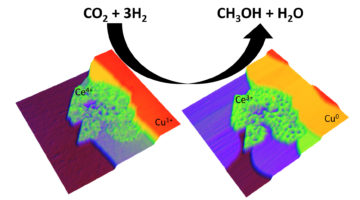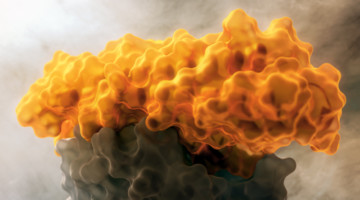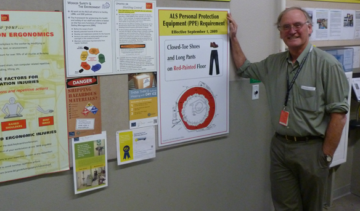Recent work at the ALS shows that the viruses infecting sulfur-oxidizing bacteria in the deep sea carry bacterial genes for the oxidation of elemental sulfur. Although the viruses themselves cannot use the sulfur, they likely supplement bacterial sulfur oxidation and then exploit the generated energy for viral replication. Read more »
From CO2 to Methanol via Novel Nanocatalysts
Researchers have found novel nanocatalysts that lower the barrier to converting carbon dioxide—an abundant greenhouse gas—into methanol—a key commodity used to produce numerous industrial chemicals and fuels. In one case, it worked almost 90 times faster than catalysts commonly used for this reaction today. Read more »![]()
![]()
Designer Proteins Target Epstein-Barr-Virus-Associated Cancer
Researchers used new protein design approaches to develop a potential inhibitor of Epstein-Barr-Virus-associated cancer. The study shows not just how to help defeat the virus, but also opens up a whole new way to design proteins against viruses and ultimately, cancer. Read more »![]()
![]()
Scott Taylor, ALS Safety Manager
The new Safety Manager at the ALS, Scott Taylor, is not so new. Taylor has been working at Berkeley Lab for 30 years now, starting in his early days as a biofuels researcher working with Melvin Calvin. Taylor isn’t new to safety either—he has been on the Lab’s Safety Review Committee since 1992 and the division safety coordinator for Life Sciences for the past six years. Read more »


